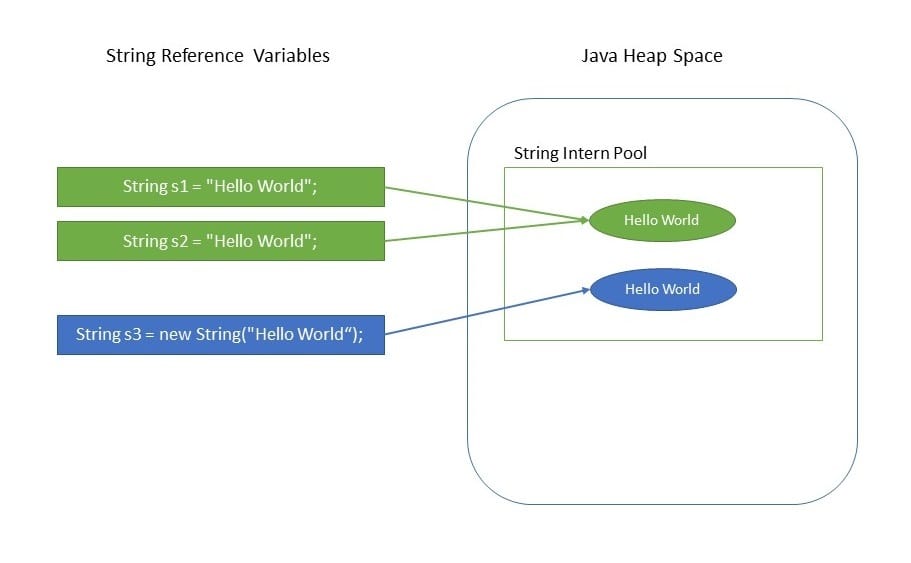Why Are Strings Immutable in Java? Necessary Understanding for Designers
Why Are Strings Immutable in Java? Necessary Understanding for Designers
Blog Article
Unalterable Strings: A Key Part in Ensuring Information Uniformity and Reliability
In the world of data monitoring, the importance of unalterable strings can not be overstated. The principle of unalterable strings transcends plain technicality; it is a linchpin in the complicated web of information governance.
The Idea of Immutable Strings
Unalterable strings, an essential principle in programming, refer to strings that can not be modified as soon as they are developed. Fundamentally, when a string value is appointed, any kind of procedure that appears to modify the string in fact creates a brand-new string. This immutability makes certain information consistency and dependability in applications, as it protects against unforeseen modifications to the original data.
Benefits in Information Consistency

Information uniformity is vital in different facets of software development, consisting of database monitoring, multi-threaded atmospheres, and distributed systems (Why are strings immutable in Java?). Unalterable strings add significantly to achieving this uniformity by stopping data corruption as a result of simultaneous gain access to. In situations where multiple processes or strings engage with the very same information concurrently, immutable strings function as a safeguard against race problems and synchronization issues
Moreover, the immutability of strings simplifies debugging and testing processes. With unalterable strings, designers can trust that when a string is set, it will remain unmodified, making it much easier to map the source of mistakes and guaranteeing that test instances generate consistent results. This dependability in information taking care of inevitably brings about much more secure and robust applications.

Applying Immutable Strings
Ensuring the immutability of strings calls for a thoughtful strategy to their application in software growth. As soon as a string object is produced, one key method is to design string classes in a means that stops alterations. By making strings immutable, programmers can enhance information consistency and reliability in their applications.
To implement immutable strings effectively, designers ought to favor developing brand-new string things instead than changing existing ones. This practice ensures that as soon as a string is appointed a worth, it can not be changed. Furthermore, any procedure that appears to modify the string ought to produce a brand-new string with the desired adjustments rather than modifying the original.
Furthermore, utilizing unalterable strings can simplify concurrency administration in multi-threaded environments. Since unalterable strings can not be transformed after production, they can be safely shared amongst several threads without the risk of information corruption.
Function in Integrity Guarantee
In software program growth, the use of immutable strings plays a crucial function in ensuring the dependability of information operations. Unalterable strings, as soon as developed, can not be modified, making certain that the data they represent stays regular throughout the application's execution. This immutability residential property supplies a useful reference degree of guarantee that the information being processed will not be inadvertently altered, leading to unexpected results or mistakes in the system.
By integrating immutable strings right into software program design, programmers can enhance the dependability of their applications by decreasing the risks connected with mutable information - Why are strings immutable in Java?. Immutable strings aid in preventing data corruption or unintended alterations, which can be especially important when managing delicate details or when information integrity is extremely important
Moreover, making use of unalterable strings streamlines concurrent handling, as multiple strings can safely access and share string information without the threat of one string modifying the material while an additional is reading it. This facet adds significantly to the total reliability of the software application system, making sure constant and predictable actions in data taking care of operations.
Applications and System Combination
The smooth assimilation of unalterable strings right into numerous applications and systems is pivotal for guaranteeing robust information consistency and integrity throughout varied technical settings - Why are strings immutable in Java?. Immutable strings play a critical role in improving the integrity of data exchanges and communications within complex software ecosystems. By integrating unalterable strings right into applications, programmers can minimize the risks connected with information tampering, unapproved alterations, and unintended modifications, therefore strengthening the general protection posture of the system
In the context of system assimilation, unalterable strings work as a foundational aspect for establishing secure communication channels and promoting seamless data transfers between different components. visit the website Their immutable nature ensures that information sent between systems continues to be proven and unchanged, decreasing the likelihood of variances or errors that could compromise the integrity of the whole system. In addition, unalterable strings can boost interoperability between diverse systems by supplying a standard layout for data representation, allowing extra reliable data handling and exchange procedures across interconnected systems. By adopting unalterable strings in applications and system assimilation procedures, organizations can strengthen their information framework and maintain the reliability and consistency of their information possessions.
Verdict
In conclusion, unalterable strings play a critical duty in maintaining information consistency and reliability in various applications and system combinations. By making certain that strings can not be altered as soon as developed, the integrity of information is protected, minimizing the risk of inconsistencies and errors. Applying unalterable strings can significantly improve the reliability of systems, ultimately leading to even more accurate and trustworthy data processing.

Report this page